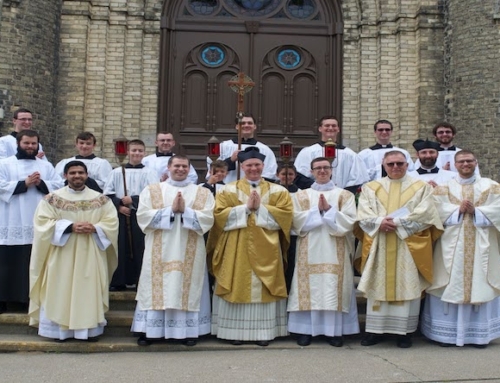When you’re around any scent long enough, you forget that it’s there. This olfactory phenomenon can lead to some rather awkward situations. If a dump stinks up an entire town, locals don’t mind. Visitors do.
Sin stinks to high heaven. Entire cultures, however, can learn to tolerate a palette of sins. They forget their sins’ stench and believe the lie that the odor is a regular part of life. They call evil good and good evil, living with noxious fumes all the while.
Our culture neglects God, and many rank aromas arise from its indifference. Those who worship God and recognize the moral order can smell the stench that so many others cannot. Unpleasant though this may be, this recognition is a great blessing. It allows the believer to live a happier life. This is not to say that Christians who have the right moral sensibilities always do the right thing—a basic acquaintance with any such Christian upends that idea. Rather, it does say that Christians can and should recognize the full truth about sin, even when others don’t. No one lives without giving off some smell, but one can live without saying that a putrid smell is fresh.
Recognizing the truth about socially accepted sins, however, places the believer in a dilemma. If he gives in to the culture’s sins, he’ll be able to get on without remembering their stench. Alternatively, if he keeps his own home fragrant, he’ll be tempted to resent his neighbors whom the Lord commands him to love and therefore give off an extra odor of his own. We have a practical tension. Evil should be shunned, yet we’re called to love our neighbors. How do we love those who immerse themselves in a sinful culture?
This question isn’t new. In Old Testament times, God chose Israel to be a nation peculiarly his own, and he gave them a law that would help them live justly. Nevertheless, the people lacked faith. Time and time again, kings and paupers alike worshipped idols and transgressed the law. Time and time again, God sent the prophets to condemn their sins. The prophets were often the only ones on God’s side. God spoke to the prophets, and their inspired rhetoric is the envy of preachers. Even so, they rarely converted their listeners. The nation rejected the prophets and chose to continue rejecting God.
How did the prophets respond? Despite the frustration they felt at the conduct of their hearers, they prayed to God and implored his mercy upon them. When the people created a golden calf at Mount Sinai, God threatened to destroy them for their idolatry. Moses, the archetypical prophet, responded to God’s threat by interceding for them and appealing to God’s love for the people. God responded by lessening his punishment. He spared them thanks to Moses’s prayer.
God could have spared the people without Moses’s prayer, since he knew what he would eventually do even before he made the original threat. But there’s a purpose in waiting for Moses to intercede before relenting. God does not only love those who love him. Rather, he loves even those who reject him. When the prophets do the same, they embody God’s love. God deigns to show his mercy through the prayers of those who exemplify his mercy. When disgusted by sin in the world, we can take heart at the mercy God showed in response to his prophets, and we can imitate them in intercession. Such prayer makes us like God. Such prayer rises up to him as a sweet-smelling incense.
✠
Image: by Gustave Doré, They beseech, That Moses might report to them his will, and terror cease







